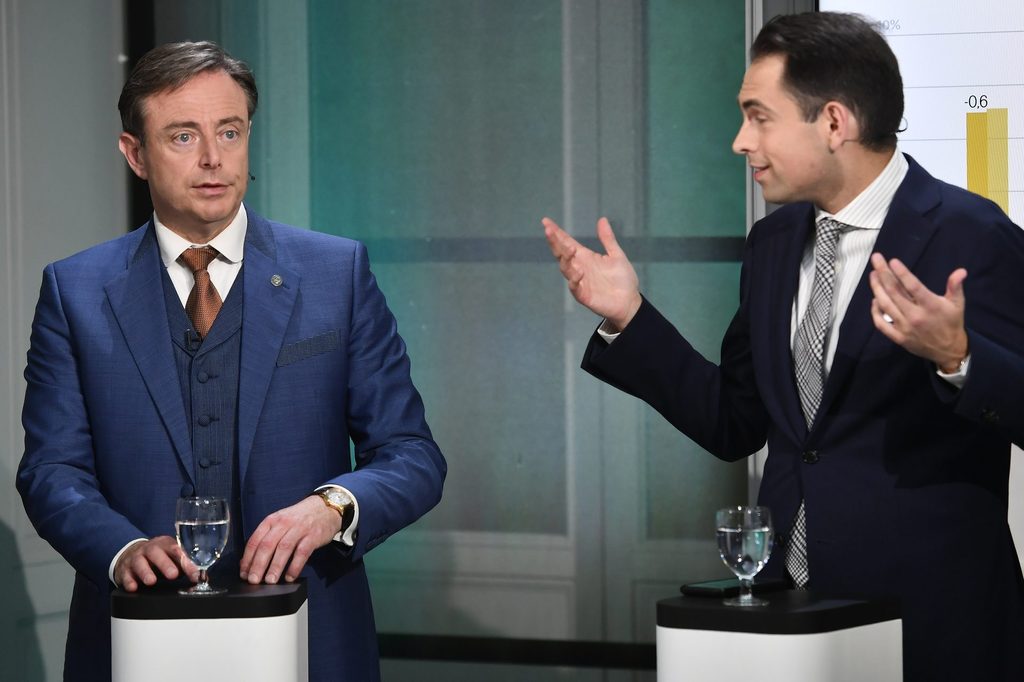Flemish nationalist and N-VA leader Bart De Wever has taken a jab at the far-right Flemish party, Vlaams Belang, highlighting the divide between Flemish independentists ahead of the June 2024 elections.
Both parties are topping the polls in Flanders, yet the two continue to not see eye-to-eye on how to achieve their longstanding goal of independence.
Speaking to the Belgian magazine Humo on Tuesday, De Wever revealed his plans to counteract Vlaams Belang’s lead in the polls. The Antwerp mayor wants to rally the conservative factions of the Flemish liberal and Christian democratic parties around him to create a right-wing alliance that can achieve 40% of the vote in Flanders.
"I would have preferred to see this alliance come into being well before 2024, but Vivaldi (the current government nickname) was in the way. With the right wings of Open VLD and CD&V, we can form a broad conservative people's party that would reach 40%," De Wever said.
However, De Wever underlined that the broad right-wing alliance would not be a governing coalition: "Forming a four-party government doesn't appeal to me at all. I will do everything, and I mean everything, to make sure that doesn't happen," warned the Flemish nationalist leader.
Chasm in the movement
On Tuesday, several Flemish media reported that De Wever had recently met independent MP Jean-Marie Dedecker, who is advocating a Flemish Government between the N-VA and the Dedecker List, with the tacit support of Vlaams Belang.
However, the N-VA leader ruled out such an option. Breaking the cordon sanitaire with the far-right party would be "the shortest route to a Vivaldi II," he said. "Vlaams Belang is the life insurance policy of French-speakers. Flanders' melanoma. The far-right has been active since the 1920s, but its track record is made up of dark chapters."

Flemish nationalist activists protest against the Belgian Royal Family in Bruges. Credit: Belga / Nicolas Maeterlinck
While both N-VA and Vlaams Belang vie for Flemish independence, both parties differ in the methods of achieving it. Vlaams Belang announced in June that, following the 2024 elections, it would put a declaration of sovereignty to the Flemish Parliament for a vote.
If successful, they claim they would negotiate a "Czechoslovakia-style" separation with Wallonia, while also making Brussels part of Flanders but as a bilingual city. However, in practice, this policy would face a multitude of legal and constitutional hurdles.
N-VA, meanwhile, is advocating to de-federalise Belgium. Effectively, this would turn regions into autonomous independent states that are unified by a confederalised system – removing all kinds of joint governance.
De Wever did not miss an opportunity to attack Belgium's other regions. "Wallonia and Brussels are virtually bankrupt," said the mayor of Antwerp. "The French-speakers are running out of money. This is an opportunity to be seized."
De Wever believes that, for that to happen, the traditional Flemish parties need to form a common front. "This will only happen if the N-VA becomes the largest party and wins the right of initiative. For that to happen, the CD&V and the Open VLD must suffer a heavy defeat so that they no longer dare to pursue the Belgian status quo."

